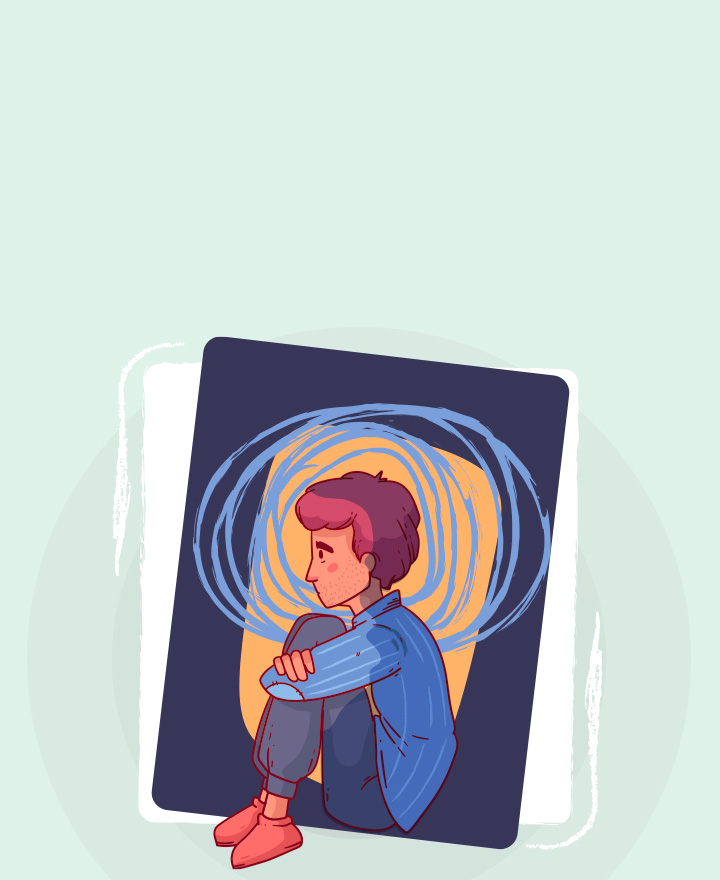

Understanding Childhood Disintegrative Disorder
Childhood disintegrative disorder may be the most feared developmental ailment for any parent. It is also known as Heller's syndrome after the Austrian special educator Theodor Heller described it for the first time in 1908. Childhood disintegrative disorder can affect developmental goals in children severely, and it is categorised under Autism Spectrum Disorders.
How does childhood disintegrative disorder manifest?
Heller's syndrome, or childhood disintegrative disorder, develops very quickly, typically in children 3 or 4 years old. But it can affect a child up to age 10. Experts believe that this disorder does not show up until the age of two. Thankfully, it is a rare condition affecting approximately 1 in 100,000 children.
The disorder rapidly reverses any development that the child has shown until then. That is, they may suffer regression in various skills like language, play skills, social behaviour, motor skills, bladder/bowel control and even cognition. This regression happens over a short span, say a couple of months, over which the child seems to reverse development rapidly.
Needless to say, this can be terrifying for both the parent and the child. It affects every child differently, and how much they regress is not predictable. The cause of this disorder is not yet clear, but research indicates that it could be neurobiological connection to the brain.
Signs of Hellers’ Syndrome
It is not possible as of now to predict if a child is at greater risk of developing childhood disintegrative disorder (CDD). However, in majority of cases, the child displays some indications that the disorder is going to affect them in coming weeks. These signs could be:
• Terrors
• Intense anxiety
• Nightmares, both in sleep and awake state
• Intense confusion similar to psychosis
• Fear
The child is usually aware that something is wrong with him/her and may also complain of headaches. In following weeks, or sometimes days, the child begins to lose skills that he/she had no problem learning until now.
A child with childhood disintegrative disorder (CDD) tends to retain some skills or some degree of skills, albeit to a lesser degree than before. For example, the child may still be able to walk, dress, and eat without help and control bladder/bowel movement but may lose the ability to communicate with language. It is difficult to predict how the disorder may affect them and which skill it will affect most severely.
Treatment
As of now, there is no cure for this disorder. However, there are therapy and treatment options to manage & give relief from the symptoms. The treatment works best when the condition gets diagnosed early. Behavioural therapy is often recommended to help the child deal with the loss of communication and social skills and teach self-sufficiency so that he/she can remain as independent as possible under the circumstances.
Conclusion
A child with childhood disintegrative disorder (CDD) needs the utmost support from the family. Parents will find that participating in support groups and talking to other parents dealing with a similar situation can help keep their spirits up and deal with their child's needs healthily.
One of the important components of our overall wellness is also being financially secured. Healthcare emergencies can happen any time, but a good health insurance policy can protect you from such uncertain situations. To know more about Wellness and other health related tips, visit the Wellness Corner.
Source: ncbi.nlm.nih.gov, autism360, mountsinai, spectrumnews
Disclaimer: This blog provides general information and discussions about health and related subjects. The information and other content provided in this blog, website or in any linked materials are not intended and should not be considered, or used as a substitute for, medical advice, diagnosis or treatment. Kindly contact your Doctor before starting a new medicine or health regime.
Related Articles
Childhood Developmental Disorders - Types & Symptoms
ADHD (Attention Deficit Hyperactivity Disorder) - What Is It
Nutrition for Kids - Why Is It Important & Necessary
Boosting Your Child's Immunity - Here's How You Can Do It!
Children With Anxiety - Symptoms and How to Help
Published on November 2, 2023














 Health Insurance
Health Insurance  Travel Insurance
Travel Insurance  Car Insurance
Car Insurance  Cyber Insurance
Cyber Insurance  Critical Illness Insurance
Critical Illness Insurance
 Pet Insurance
Pet Insurance
 Bike/Two Wheeler Insurance
Bike/Two Wheeler Insurance  Home Insurance
Home Insurance  Third Party Vehicle Ins.
Third Party Vehicle Ins.  Tractor Insurance
Tractor Insurance  Goods Carrying Vehicle Ins.
Goods Carrying Vehicle Ins.  Passenger Carrying Vehicle Ins.
Passenger Carrying Vehicle Ins.  Compulsory Personal Accident Insurance
Compulsory Personal Accident Insurance  Travel Insurance
Travel Insurance  Rural
Rural